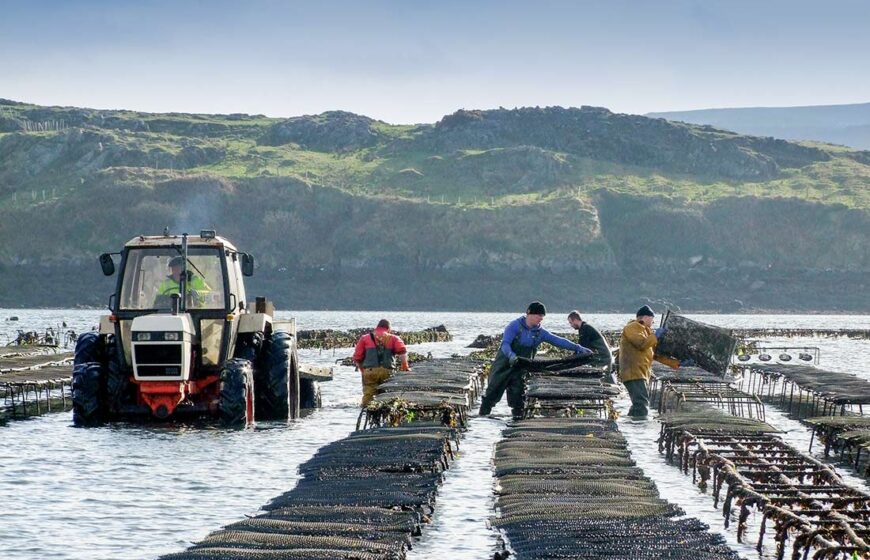Covid-19 Travel to Ireland
Update as of May 26, 2021
We are pleased to share some good news from Ireland’s hospitality industry as the covid-19 situation is being managed and monitored. While most international travel has not yet received the green light for entry, the island has started the initial steps of its domestic tourism market which is very good news and we hope a step that will keep moving in the right direction. Hotels in Northern Ireland reopened their doors to guests earlier this week and the Republic of Ireland will do the same next week.
In the meantime, please see information below for travelers from the United States and Canada regarding entry to the island of Ireland.
Please note that the Irish Government Advisory against all non-essential international travel into the Republic of Ireland Northern Ireland is still in place, as well as the legal requirement to quarantine for passengers arriving in Ireland.
Arrival into the Republic of Ireland
Passengers arriving into Ireland from designated states such as the United States & Canada are required to pre-book accommodation in a designated quarantine facility, and to pre-pay for their stay. A full list of designated areas can be found here: https://www.gov.ie/en/publication/b4020-travelling-to-ireland-during-the-covid-19-pandemic/#designated-states-mandatory-hotel-quarantine
For passengers arriving into Ireland from non-designated states, the quarantine period of 14 days can be undertaken at the address notified on the passenger locator form, and you must have proof of a negative (‘not detected’) result from an RT-PCR test for COVID-19 taken within the period of 72 hours prior to their arrival in Ireland. You can only end this period of quarantine at home if you get a negative (‘not detected’) RT-PCR test no earlier than 5 days after your arrival in the State. If a negative test result cannot be produced within the period of 72 hours prior to their arrival in Ireland, the traveler will need to complete the 14-day pre-book and pre-pay accommodation requirement.
There are a limited number of exemptions from mandatory quarantine, including a person who is fully vaccinated with an approved vaccine and has the documents to prove that, they must also have adhered to the waiting period pertaining to their vaccination after which they are deemed fully vaccinated.
Even if you are fully vaccinated, you still have to have a negative (‘not detected’) RT-PCR test for COVID-19 taken in the 72 hours before your arrival in Ireland. You must also complete a period of self-quarantine at home or in the place specified in your passenger locator form.
What ‘fully vaccinated’ means
| A full course of any one of the following vaccines | Regarded as fully vaccinated after |
| 2 doses of Pfizer-BioNtech Vaccine: BNT162b2 (Comirnaty®) | 7 days |
| 2 doses of Moderna Vaccine: CX-024414 (Moderna®) | 14 days |
| 2 doses of Oxford-AstraZeneca Vaccine: ChAdOx1-SARS-COV-2 (Vaxzevria® or Covishield) | 15 days |
| 1 dose of Johnson & Johnson/Janssen Vaccine: Ad26.COV2-S [recombinant] (Janssen®) | 14 days |
Additional self-isolation requirements and limited exemptions are set out on the government website https://www.gov.ie/en/campaigns/75d92-covid-19-travel-advice/.
Exemptions:
- International Transport Workers, including workers in aviation, maritime and road haulage sectors are exempt from this requirement where they are travelling in the course of performing their duties.
- Children aged 6 and under are also exempt from the testing requirement, although they are advised to restrict movements for 14 days.
- Patients travelling to Ireland for urgent medical reasons, and that reason is certified by registered medical practitioner or person holding an equivalent qualification outside the State.
- Passengers whose journey originated in Northern Ireland and have not been overseas in the 14-day prior to arrival.
- A member of the Gardaí or Defence Forces personnel travelling to the State in the course of performing his or her duties.
- Essential workers who have written certification issued by a state body under the regulation.
- A person who travels to the State pursuant to an arrest warrant, extradition proceedings or other mandatory legal obligation.
- Travel to perform the function of or provide services to an office holder or elected representative, where such travel to Ireland is required to continue providing such services or performing such functions.
- If a citizen has a genuine humanitarian emergency requiring urgent travel, they should contact the nearest Embassy or Consulate immediately for advice and consular assistance before commencing their journey.
Please note that it is a penal offence not to complete the information in the manner specified. It is also an offence to provide false or misleading information on the form.
Arrival into the Northern Ireland
Anyone arriving into Ireland to travel on to Northern Ireland who has been in or through a designated State in the previous 14 days is obliged to enter mandatory quarantine in a designated facility and to pre-book it in advance, unless they meet the exemption requirements as outlined by the Department of Health.
Currently, the United States & Canada are both listed on Northern Ireland’s amber list and so if you’re travelling to Northern Ireland from an amber country, either directly or via another country, including British and Irish nationals returning home, you must:
- provide proof of a negative COVID-19 test result taken up to three days before departure
- book post-arrival testing
- complete a UK passenger locator form 48 hours before departure
- self-isolate for 10 days
Travel within the Common Travel Area (CTA) has been permitted by the Northern Ireland Executive effective May 24, 2021.
The CTA is made up of the United Kingdom, Republic of Ireland, Isle of Man and Channel Islands.
The executive says if you are coming to Northern Ireland from Great Britain and plan to stay for more than 24 hours, you should self-isolate on arrival for 10 days unless you are exempt – although this is not law.
Exemptions in its guidance include:
- Returning home, if you are away from your permanent place of residence
- Working, where you cannot work from home
- Accessing health and social care services or childcare services
- Fulfilling essential caring responsibilities
- Fulfilling a legal obligation, including attending court
- Attending a funeral of a member of your household or close family member
The Republic of Ireland is also part of the CTA, and you can travel across the border.
But advice remains that people arriving in Northern Ireland who have travelled from the Republic of Ireland and are staying for more than 24 hours should self-isolate for 10 days on arrival.
Anyone crossing the border routinely for work or other essential purposes is exempt.
Guidance states that other exemptions include:
- Buying essential goods or services within your local area, where you live in counties that border the Republic of Ireland
- Attending the care and exercise of an animal, or veterinary services, where you live in counties that border the Republic of Ireland
Full information on traveling to Northern Ireland from green, amber or red listed countries can be found here: https://www.nidirect.gov.uk/articles/coronavirus-covid-19-travelling-within-common-travel-area
Please note that the covid-19 travel information is changing daily and we are monitoring this closely. Should you have any queries regarding traveling to the island of Ireland, we are here for you and happy to help. We are very much looking forward to welcoming you to the Emerald Isle soon, but in the meantime stay well!




